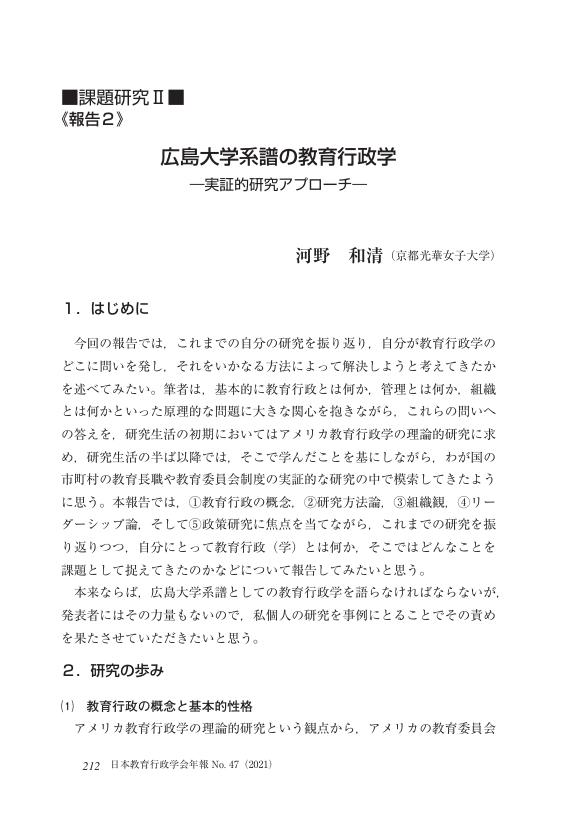2 0 0 0 OA 広島大学系譜の教育行政学 ―実証的研究アプローチ―
- 著者
- 河野 和清
- 出版者
- 日本教育行政学会
- 雑誌
- 日本教育行政学会年報 (ISSN:09198393)
- 巻号頁・発行日
- vol.47, pp.212-215, 2021 (Released:2023-05-13)
- 参考文献数
- 4
2 0 0 0 アメリカ教育経営学における現象学的アプローチ
- 著者
- 河野 和清
- 出版者
- 日本教育経営学会
- 雑誌
- 日本教育経営学会紀要 (ISSN:02872870)
- 巻号頁・発行日
- vol.30, pp.91-106, 1988
During the 1950's and the early 1960's, the so-called "theory movement" in American educational administration was initiated and actively developed under the influence of logical positivism. The theory movement provided us with the positivistic paradigm which attempted to study administrative phenomena in the mode of scientific inquiry. This paradigm, until very recently, has dominated inquiry and discourse in educational administration. But, as early as the 1970's, serious questions have been raised about the usefulness of hypothetico-deductive theory and research developed or conducted during the movement. Though there was already critique of the theory movement from its early years, according to J. Culbertson, T. B. Green-field was the first scholar to criticize systematically the presuppositions underlying the core ideals of this movement from phenomenological point of view. The purpose of this paper is to examine the characteristics and the significance of phenomenological approach proposed by Greenfield. The contents are as follows: 1. Introduction 2. Characteristics of the theory movement 3. Epistemological question 4. The view of organization and the research methodology of phenomenological approach 5. The significance of phenomenological approach The debate between the theory movement's pioneers and those who questioned the pioneers is much needed and to be welcomed, for it opens new avenues for pursuing the study of educational administration. The phenomenological approach gives a good deal of impetus to the methodological self-examination and self-awakening in educational administration studies.
